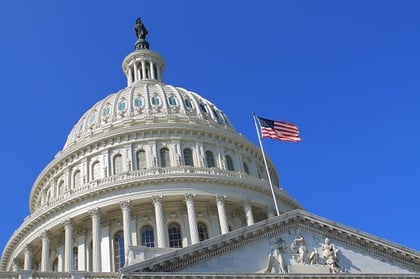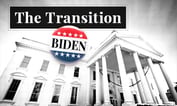 (Photo: Shutterstock)
(Photo: Shutterstock)Top Democrats introduced legislation Tuesday to retroactively extend the $600 weekly federal boost to unemployment insurance benefits through October 2021.
The bill, the American Worker Holiday Relief Act, was introduced by Senate Finance Committee Ranking Member Ron Wyden, D-Ore., Senate Democratic Leader Chuck Schumer, D-N.Y., Senate Banking Committee Ranking Member Sherrod Brown, D-Ohio, Senate Finance Committee Member Michael Bennet, D-Colo., and Sen. Jack Reed, D-R.I.
“Unless Congress acts, these benefits will expire at the end of the year, just like the additional $600 in unemployment Republicans let expire over the summer. These benefits have kept millions of Americans out of poverty and prevented the bottom from falling out of our economy,” Brown said.
The bill would add 26 weeks of federal benefits for workers receiving traditional unemployment insurance. An additional 13 weeks of benefits would be added for each percentage point a state’s unemployment rate rises above 5.5% and for up to a maximum of 78 weeks when a state’s unemployment rate is above 8.5%.
“With the economy backsliding as COVID-19 cases explode nationwide, Senate Republicans are set to push millions of American families off a cliff, leaving them with no way to pay rent or feed their families the day after Christmas. Our bill would provide relief for workers who are hanging by a thread through no fault of their own,” Wyden said.
The bill would also tie the additional weeks of federal benefits and new Pandemic Unemployment Assistance (PUA) program for gig and freelance workers to economic conditions on the ground.
“The additional weeks of federal benefits and the program for gig and freelance workers would not expire as long as the three month average national unemployment rate is above 5.5%, and will stay available longer in states where unemployment remains high,” according to the senators.
Package Needs to Pass in Lame Duck
Treasury Secretary Steven Mnuchin told senators Tuesday that based on recent economic data, he believes a “targeted fiscal package” is needed to help the nation’s economy and encouraged “Congress to use the $455 billion in unused funds from the CARES Act to pass an additional [stimulus] bill with bipartisan support.”
Mnuchin, in testimony before the Senate Banking Committee, said that small businesses can’t wait for months for more help, and urged lawmakers to “reallocate unused money and more money” to the Paycheck Protection Program, which still has over $100 billion available. “I think there’s a lot that can be done and should be done very quickly.”
Mnuchin said lawmakers should approve another $300 billion in PPP funds.
PPP as well as the unemployment benefits that are running out are “high on the list” in an upcoming stimulus package, Mnuchin said, adding that he’d be speaking with House Speaker Nancy Pelosi, D-Calif., about the government funding Tuesday afternoon.
“We obviously did not intend for there to be another CR [continuing resolution] … and I’m sure I’ll be speaking to her [Pelosi] about CARES funding as well. We support targeted, quick relief,” he explained.









 December 01, 2020 at 01:57 PM
December 01, 2020 at 01:57 PM










